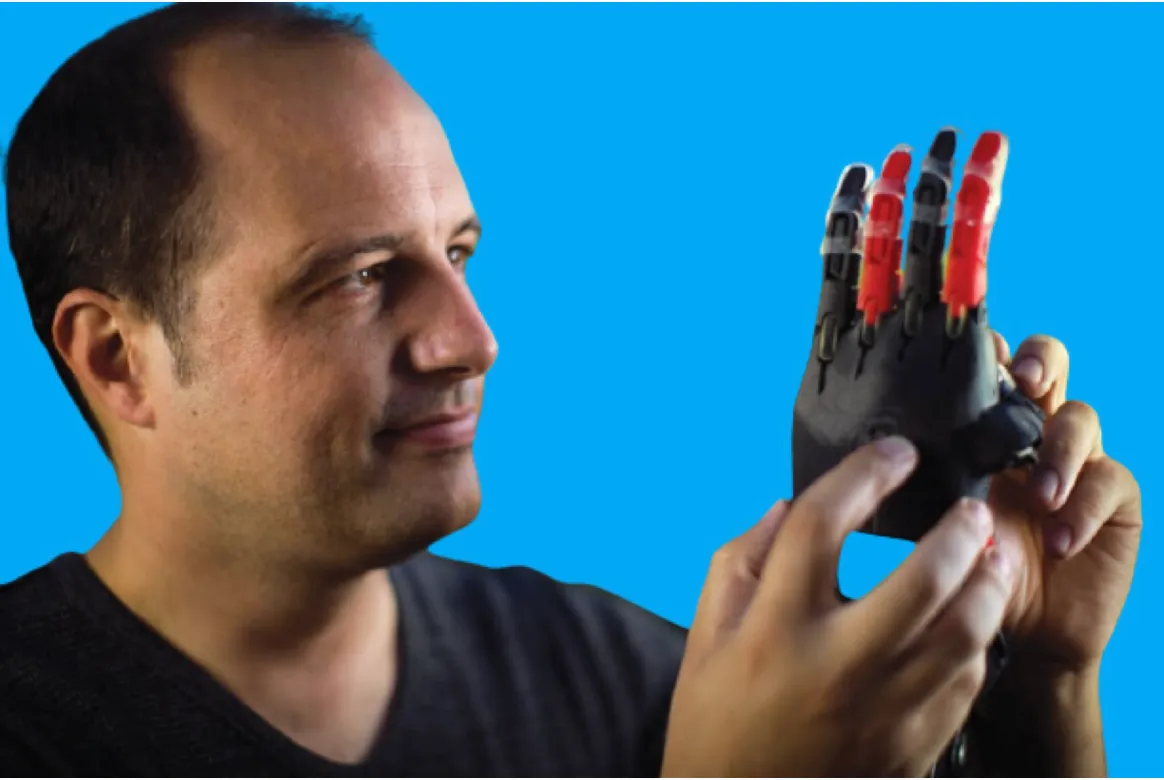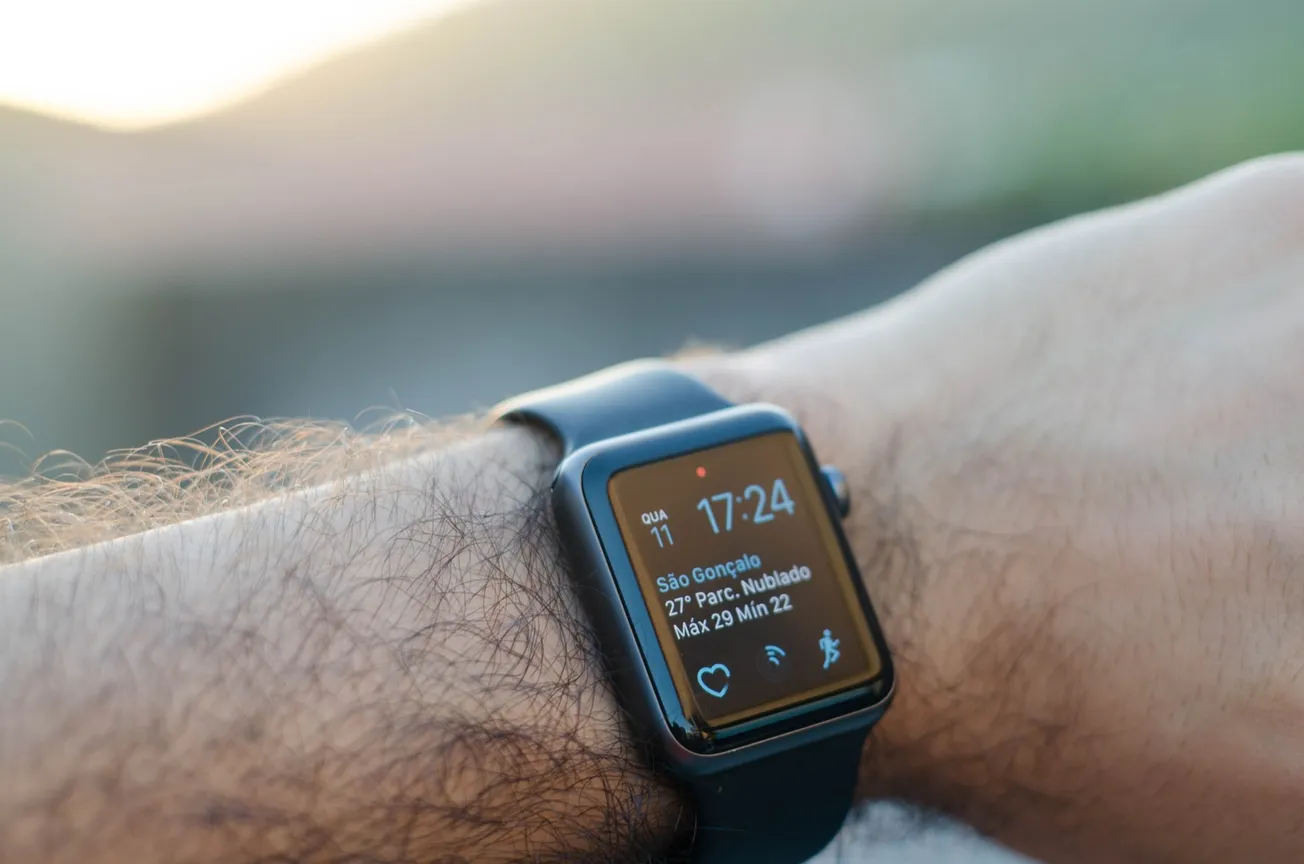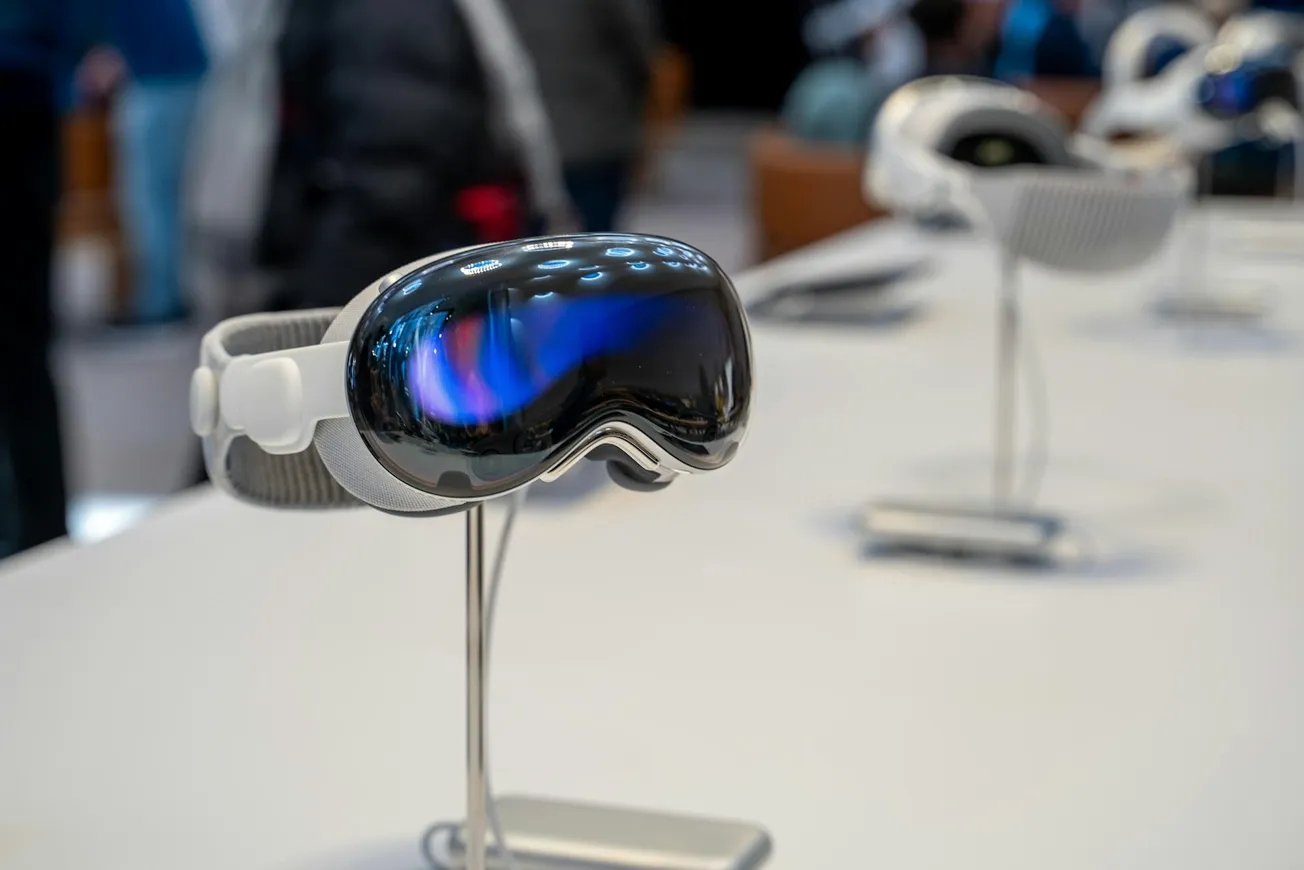Table of Contents
Making a prosthetic can cost thousands of dollars, but social entrepreneur Mat Bowtell is using 3D printing to make it affordable.
When Mat Bowtell was retrenched from his job at Toyota in 2017, the father of two decided to use his redundancy payout, and his skills originally gained at Monash, to make a positive difference in the world.
These days, the engineer-turned-social entrepreneur can be found in an expansive warehouse on Phillip Island – 140 kilometres southeast of Melbourne – making 3D-printed prosthetic limbs, which he sends to people all over the world, for free. Bowtell says the idea to make affordable prosthetics was first planted in 2004, during his Monash Abroad scholarship at Japan’s Chiba University. It was part of his double engineering and arts degree, in which he studied industrial engineering and Japanese.
“While I was at Chiba I had the chance to try on a $1 million bionic arm,” he recalls. “I was so amazed at the technology, but at the same time I was shattered that the arm would never get to the people who really needed it.”
It set him thinking, and a decade later that seed of an idea sprang to life. “Not long after Toyota announced it was closing the manufacturing plant, I was at an air show where there were 3D printers on display and I thought, ‘Maybe this is the technology I need to get the cost of making that $1 million arm down to a point where I could give it away’.” Today, he’s doing just that. Through his organisation Free 3D Hands, Bowtell produces a range of devices using 3D printing, including a revolutionary body-powered kinetic finger that he makes for just 90 cents.
He makes prosthetic hands for a mere $8, and has a bionic arm in development that he hopes to manufacture for between $50 and $100 – and which he says will be equivalent to a $40,000 product. He also makes devices that allow children with disabilities to do many things others take for granted, such as sipping from a cup, skipping rope, serving a tennis ball or playing the piano.
Bowtell uses crowdfunding to deliver these devices to people around the world. “I used to know how many I’d made, but I’ve lost count,” he says. “It’s well into the hundreds.”
Transforming lives, limb by limb
Determined for his prosthetics to be as widely accessible as possible, Bowtell also makes his designs freely available online so anyone with access to a 3D printer can produce them. To date, his designs have been downloaded more than 3000 times. “It’s pretty emotional when you hear how these devices are changing people’s lives,” he says.
Bowtell says he’s received dozens of messages from parents about the impact his prosthetics have had.
“They tell us they’ve never seen their child so confident and happy. They’re joining in with their friends and some are even learning to play musical instruments.
“It’s this feedback, and the smiles on children’s faces, that motivate us to keep doing what we’re doing,” says Bowtell, who in May 2019 received a Commonwealth Points of Light award from Queen Elizabeth II for “exceptional service designing and creating affordable prosthetic limbs”.
This year, Free 3D Hands was also registered as an Australian charity, enabling it to receive tax-deductible donations to “make an even bigger impact” and to work with registered charities in developing countries as a trusted distribution channel for prosthetic limbs.
“Getting our limbs to people in developing countries is a big focus moving forward,” he says. “Our aim is to make our assisted devices available to every person on the planet.”
If you enjoyed this BFD article please share it.









